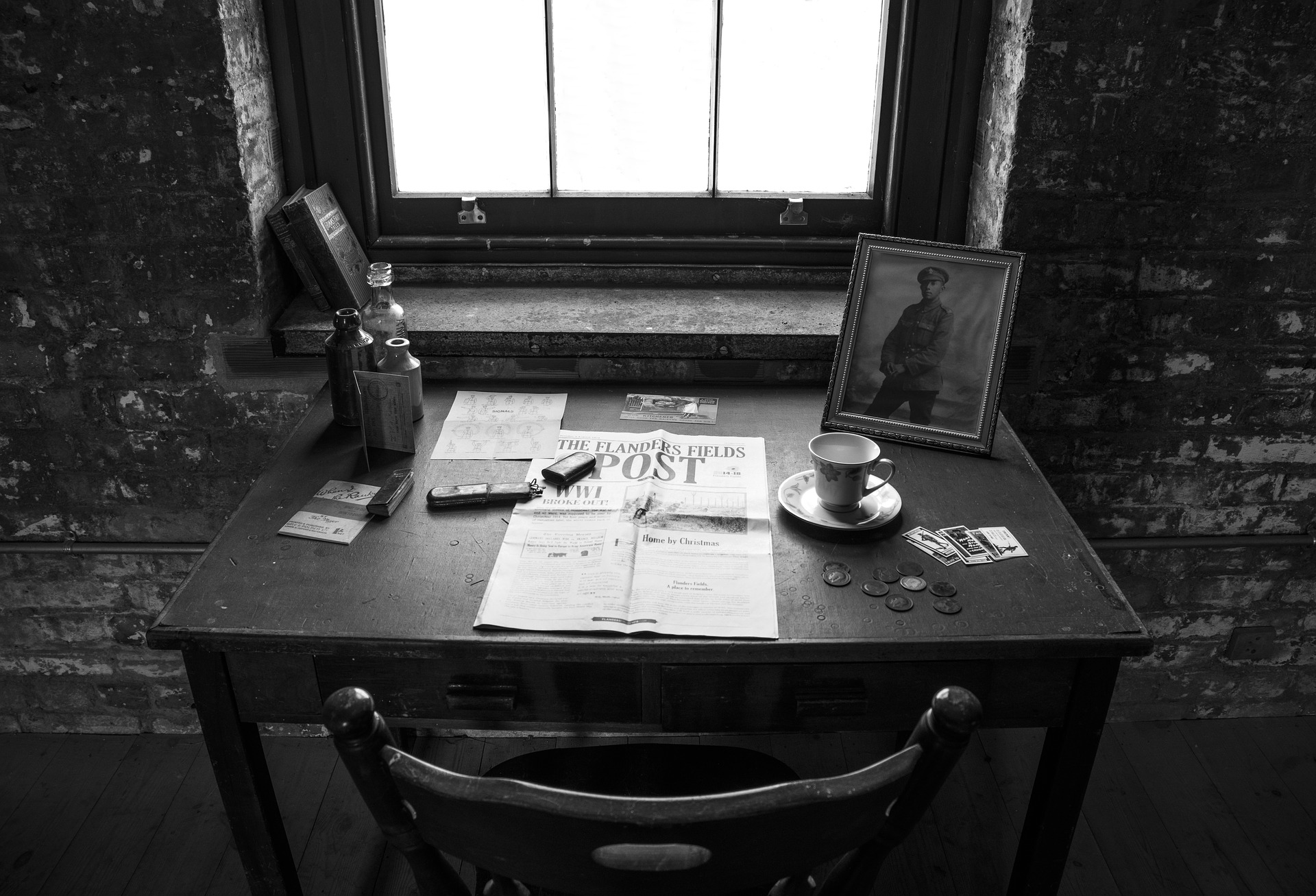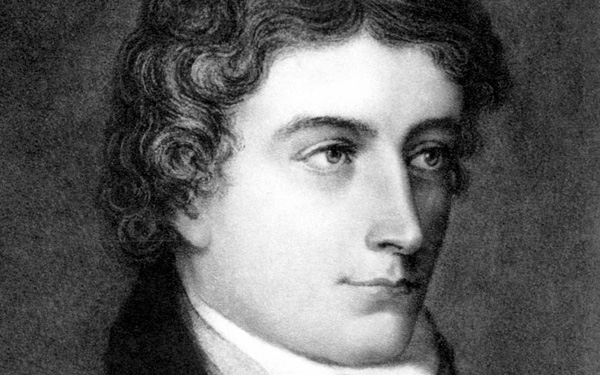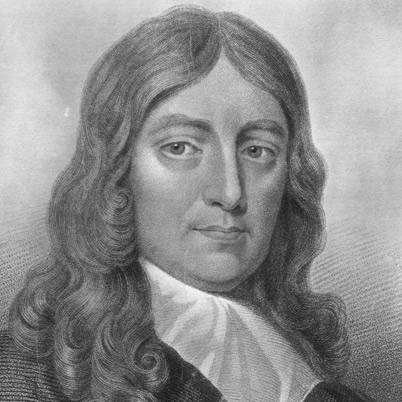This poem is an autobiographical one. As we know, Milton did, in fact, go blind in the 1650s. Therefore, he is writing about his own experiences. However, if we go beyond the surface matter of this poem, we will see that it is less about his blindness and more about a philosophical exposition on the nature of service to God.
On His Blindness: Analysis
Living in the Puritan era, Milton believed that each man serves God in his own way. This is the belief he propounds within this poem. This belief was, in fact, based on his own study of the scriptures. The fact that he was familiar with the scriptures is amply proved by his reference to the Parable of the Talents in the 3rd line of this poem itself. This is one of the parables of Jesus, which appear in two of the canonical gospels of the New Testament. The Parable of the Talents, in Matthew 25:14–30, tells the story of a master who was leaving his house to travel. Before leaving, he entrusted his property to his three servants. According to each man’s abilities, one servant received five talents, the second servant received two talents, and the third servant received one talent. A talent, in this case, was a significant amount of money.
Upon returning home after a long time, the master asked his three servants to account for the talents he had entrusted to them. The first and the second servants explain that they each put their talents to work and doubled the value of the property with which they were entrusted. Both of these servants were rewarded. However, the third servant had merely hidden his talent and buried it in the ground, so his master punished him with death. For Milton, the word “talent” does not connote any amount of money but is used in its more modern sense as a unique ability in a person.
Milton believes that God has given him the talent of poetic composition, and in his absence, Milton ought to use that talent to produce great works of art. However, the prospect of impending blindness has shaken Milton’s confidence. He feels he shall never be able to write again. He feels guilt and believes that if he does not put his God-given talent to use, he will be punished with death. However, God is merciful, and He has a master plan for everyone on this earth. Whatever He does, He does it for a reason. Even though Milton does not understand why God has taken away his vision, he must be patient, and he must learn to accept what is given him with dignity and grace. Instead of railing against our bad fortune, we ought to accept it with a smile on our faces. This is the best way to serve God and to have faith in his master plan. This is the lesson that Milton sets out to teach.
On His Blindness: Annotations
Please note: N= noun, V=verb, Adj=Adjective, Adv=Adverb, P=Preposition, C=Conjunction
Consider (V): Think carefully about (something), typically before making a decision
Spent (Adj): Having been used and unable to be used again
’Ere (P): An older form of the word “before.”
Talent (N): (i) Natural aptitude or skill
(ii) A significant amount of money
Lodg’d (V): Short form of the word “lodged,” which is, in turn, the past participle form of the word “lodge,” that is, to leave money or a valuable item in (a place) or with (someone) for safekeeping
Soul (N): The spiritual or immaterial part of a human being or animal, regarded as immortal
Bent (Adj): Determined to do or have
Serve (V): Perform duties or services for (another person or an organization)
Therewith (Adv): With or in the thing mentioned
Maker (N): God
Account (N): A report or description of an event or experience
Lest (C): Because of the possibility of something undesirable happening; in the case
Chide (V): Scold or rebuke
Doth (V): An older form of the word “does.”
Exact (V): Demand and obtain (something) from someone
Day-labour (N): Work done where the worker is hired and paid one day at a time, with no promise that more work will be available in the future
Fondly (Adv): In an affectionate manner
Patience (N): The capacity to accept or tolerate delay, problems, or suffering without becoming annoyed or anxious
Prevent (V): Keep (something) from happening.
Murmur (N): A softly spoken or almost inaudible utterance
Bear (V): Be able to accept or stand up to
Mild (Adj): Not severe, serious, or harsh
Yoke (N): Used to refer to something regarded as oppressive or restrictive
State (N): Pomp and ceremony associated with the monarchy or high levels of government
Kingly (Adj): Associated with or typical of a king; regal
Bidding (N): The ordering or requesting of someone to do something
Speed (V): Move quickly
Post (V): Travel with haste; hurry
O’er (P): An older form of the word “over.”
On His Blindness: Poetic Devices
Rhyme scheme:
Sonnets typically occur in two types of rhyme schemes – in the pattern ABBA ABBA CDE CDE, known as the Petrarchan sonnet, or in the pattern ABAB CDCD EFEF GG, known as the Shakespearian sonnet. “On His Blindness” is a Petrarchan sonnet as it follows the above-mentioned rhyme scheme perfectly without any deviation of any sort from its fixed structure.
Rhetorical devices:
Allusion:
This rhetorical device is designed to call something to mind without mentioning it explicitly. It is thus an indirect or passing reference. In this poem, the poet uses the device of allusion in the 3rd line. He alludes to the Parable of the Talents.
Personification:
This rhetorical device is used to bestow human qualities on something that is not human. In this poem, the poet uses personification on the 8th line concerning Patience. He capitalizes the ‘P’ in ‘Patience’ and gives Patience the human ability to speak.
On His Blindness: Central Idea
Milton laments the fact that he is going blind. He fears he shall not be able to use his God-given gift of poetic composition anymore. He asks God whether God would be cruel enough to expect a blind man to use his talents to produce goods as a price for giving him the talent in the first place. However, Milton’s patience stops him from voicing this question and assures him instead that the best way to serve God is to accept whatever he places in our path with courage and dignity.
On His Blindness: Theme
Talents and their uses:
Milton believes that God endows every man with some talent or the other. It is man’s duty to put that talent to use. Milton has been given the talent of poetic composition, and he takes his role as a poet very seriously. He feels he must go on producing great art throughout his life. However, his blindness may prevent him from doing so. If such a thing happens and he cannot write anymore, he will feel that he is wasting his talent. That is why a feeling of guilt overtakes Milton when he considers the ill effects his blindness could have on his life.
God’s master plan:
God has a master plan for every man on earth. Whatever joys and sorrows a man faces are all planned for him by God. Therefore, one must not rail against one’s misfortune. One must bear every storm with a smile on his face and with courage in his heart. Milton had previously believed that putting his God-given talent to use is the only way to serve God. But his blindness has taught him that there are other ways to serve God as well. One of those ways and the best one is never to question God about his master plan. We must put our lives into His hand and relinquish all control over them. If we have faith in God, he will be by our side in our good times and our bad times.
On His Blindness: Tone
The tone of this poem undergoes a remarkable change from the beginning of the poem to its end. At the start of the poem, Milton is very depressed and anxious. He feels that his blindness will get in the way of his poetic composition. However, as the poem progresses, he finds consolation within himself. He learns to have faith in God. He learns to accept whatever obstacles God puts in his path with courage and dignity. He learns to fight against all odds without ever losing hope. Finally, at the end of the poem, he emerges as a stronger and surer person.
“On his Blindness” is very emblematic of the puritan era. Earlier, when Catholicism was more prevalent as the major religion of England, there was no space for religious doubt. Expressing religious doubt was seen to be tantamount to heresy. However, with the rise of the Protestants, followed by the Reformation, followed by the dawn of the puritan era, the man began to explore his doubt. Only by confronting doubt could he make his faith stronger. Milton was well aware of this fact, and so he put it to good use in this poem. That is why this poem is as famous as it is. You can also refer to On His Blindness: Line by Line Summary here.
Some online learning platforms provide certifications, while others are designed to simply grow your skills in your personal and professional life. Including Masterclass and Coursera, here are our recommendations for the best online learning platforms you can sign up for today.
The 7 Best Online Learning Platforms of 2022
- Best Overall: Coursera
- Best for Niche Topics: Udemy
- Best for Creative Fields: Skillshare
- Best for Celebrity Lessons: MasterClass
- Best for STEM: EdX
- Best for Career Building: Udacity
- Best for Data Learning: Pluralsight















